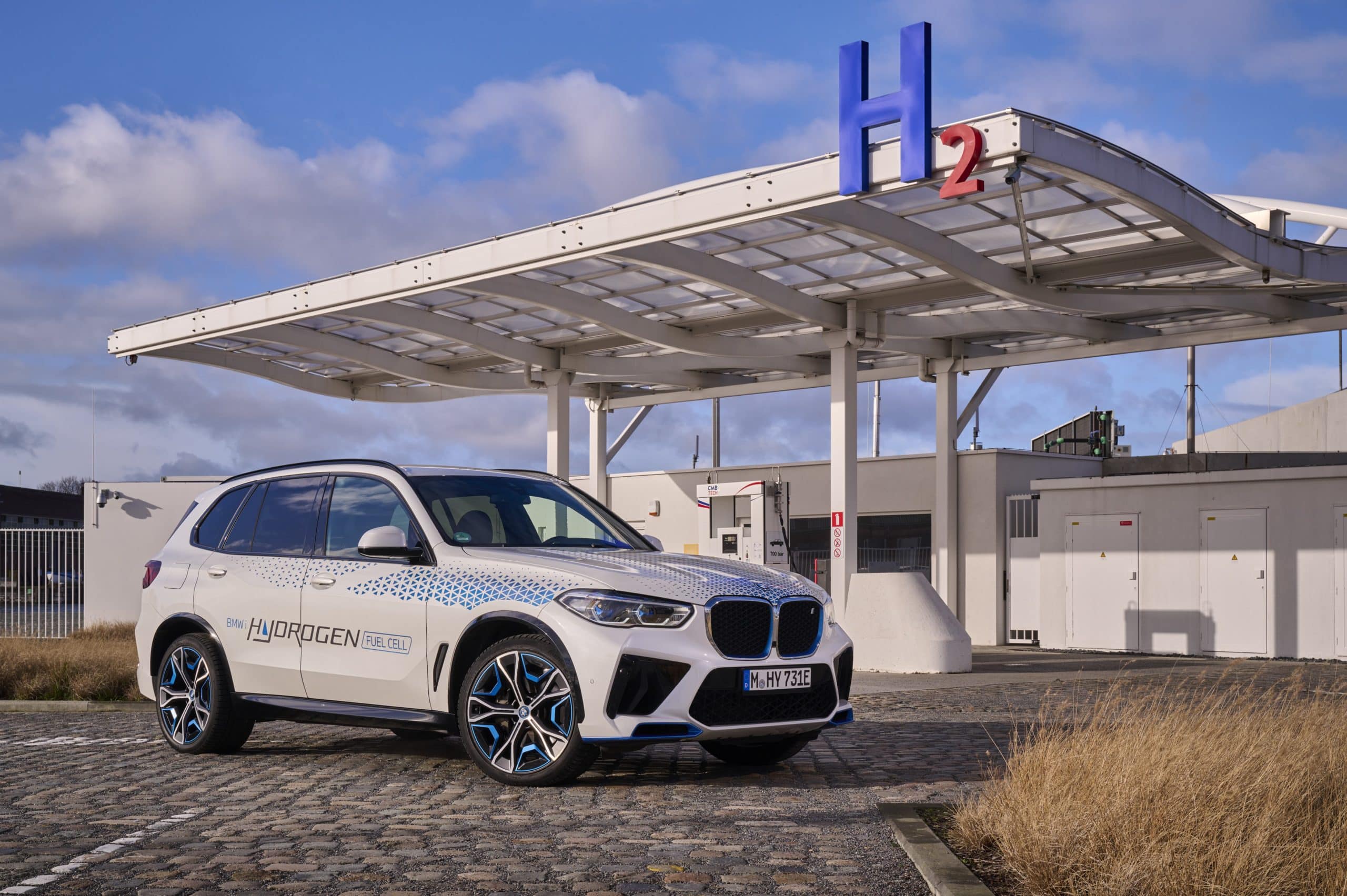Hydrogen powered fuel-cell electric vehicles (FCEVs) are extremely rare. BMW plans to bring a small fleet of iX5 Hydrogen cars to South Africa in 2024 to gauge interest with government representatives, thought leaders and potential customers. We got a sneak preview of the car at the IAA Mobility 2023 show in Munich.
The world’s largest hydrogen-powered mining vehicle was launched in South Africa by multi-national mining company Anglo American in 2022. The prototype mine haul hybrid truck uses 2MW of hydrogen fuel cells to carry 290-tonnes, designed specifically for mining conditions at Mogalakwena Mine, the world’s largest platinum mine, in the country’s Limpopo province.
At the launch, President Cyril Ramaphosa called it a historic event not because of the impressive piece of machinery, but for being the “genesis of an entire ecosystem powered by hydrogen”.
“This is a gigantic leap for South Africa’s hydrogen future economy,” said Ramaphosa.
Fast forward to the Festival of Motoring in Johannesburg in August this year, when BMW showcased a unique vehicle flown in from its global fleet: an iX5 Hydrogen vehicle.
The display drew lots of attention from visitors. Peter van Binsbergen, the head of BMW Group South Africa, said there were many discussions locally about just energy transition, and with its trial fleet of the vehicle, it would contribute to the development of the hydrogen economy.
“I feel that a country like South Africa, and indeed a continent like Africa, has the ideal conditions to be a leader in generating green hydrogen for industrial and automotive applications,” said van Binsbergen.
In partnership with the South African government and other entities, Anglo American conducted a hydrogen valley feasibility study to identify three potential hubs in the cities of Johannesburg and Durban, and in Limpopo, to integrate hydrogen into the country’s economy.
It is reportedly estimated that the hydrogen valley concept could add between $4 billion to $9 billion to South Africa’s Gross Domestic Product by 2050 and create between 14,000 to 30,000 direct and indirect jobs per year.
Meanwhile, BMW plans to bring a small fleet of iX5 Hydrogen cars to South Africa in 2024 to gauge interest with government representatives, thought leaders and potential customers.
The German auto maker is due to make an announcement soon regarding an agreement with two large South African multinationals to work together to use hydrogen as an energy source.
Speaking to FORBES AFRICA ahead of the IAA Mobility 2023 show in Munich in September, Dr Jürgen Guldner, general program manager of hydrogen technology at the BMW Group, says the future of energy is electric.
“Electricity produced from solar, wind, and hydropower will be the backbone of our energy system, versus today where we produce energy from coal, gas, oil, and a little bit from the sun,” says Guldner.
Electricity has a few issues that can be solved with hydrogen, he explains; the main one being how difficult it is to store electricity over a long period of time. “You have to use something like hydrogen as a gas for chemical component molecules instead of electrons to store energy over longer periods of time, like several months.”
The feedback from BMW customers is that not all are 100% happy with a battery electric vehicle; they want to be emission-free but prefer to drive like they currently do without worrying about charging, he says.
“Hydrogen does exactly this; a hydrogen car is an electric car – the only difference is the energy is stored as hydrogen and not as electricity in a battery.”
The iX5 hydrogen prototype that FORBES AFRICA had access to briefly in Munich showcased the vehicles fitted with two 700-bar tanks that contain 6kg of hydrogen in total, which can be operated in any weather condition. The eDrive’s peak power battery can supply additional power boost on top of the electric energy from the fuel cell system.
The iX5 is based on the current BMW X5, has a total output of 296kW and a range of 504km without refueling the tanks. It can go from 0-100km/h in under six seconds, and has a top speed of 185km/h.
Hydrogen powered fuel-cell electric vehicles (FCEVs) are extremely rare, with only 15,391 units sold globally in 2022, representing 0.02% of global passenger sales when compared to the 10.5 million battery electric vehicles (BEVs) sold in 2022. In Japan alone, there was a huge drop in sales, from 2,440 vehicles sold in 2021, vs. 844 in 2022.
These stats were shared by BloombergNEF Electric Vehicle Outlook 2023 report, which said figures were so low that it could not make future projections: “We are not able to make a long-term outlook for passenger FCVs while sales are so low, show limited momentum and are highly concentrated in a few markets and models.”
There are two mass-produced hydrogen vehicles on sale today: the Toyota Mirai and the Hyundai Nexo. Upcoming FCEV models include the BMW iX5, Honda CR-V, Hyundai Staria, Kia Carnival, and Toyota GR Yaris H2.
While the industry is still an experimental one, there are concerns from scientists about the lack of data on hydrogen leaks and the potential harm they could cause, according to Reuters, which may cause a blind spot for the nascent industry. It said at least four studies concluded that hydrogen loses its environmental edge when it seeps into the atmosphere.
Despite this, the European Commission’s proposed REPowerEU plan aims to produce 10 million tons (MT) of renewable hydrogen and 10MT of imported renewable hydrogen by 2030, as part of achieving climate neutrality by 2050.
